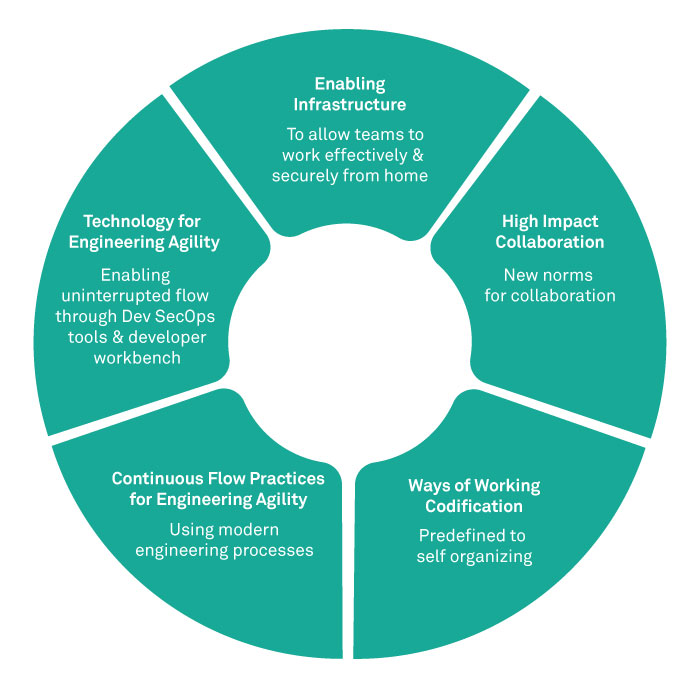Take Work to Talent: COVID-19 is Accelerating the Need for a New Talent Strategy in Middle East
The Middle East holds a prominent place in the digital transformation landscape. According to Gartner, the IT spending in the Middle East and North Africa (MENA) will total $160 billion in 2020, an increase of 2.4% from 2019, with a double-digit growth in enterprise software.
The COVID-19 pandemic impacted the region the same way it did other major markets. A PwC COVID-19 pulse survey states that 72% of Middle East CFOs are predicting the return to ‘business as usual’ to take more than three months, with a huge impact on employment. And organizations expect furloughs in the coming months owing to the disrupted demand and supply.
However, for a region, that has been accelerating IT investments and digital transformation, setting new benchmarks in the field of happiness, and creating mega events like the Dubai Expo 2020 - the disruption caused by COVID-19 has created unique opportunities.
Understanding the role of business culture in the Middle East
Despite countries investing in digital transformation, the pace of adoption in the region as a whole has been slow. An element that could be holding the region back is the way trust functions as a cultural concept. Here, trust is deeply rooted in social relationships, making the challenge for growing digital, people related as opposed to technology. The Middle East was striving to strike a balance between imported expertise to leapfrog in the short term and training their own talent to build sustained transformation.
Redefined talent models: COVID-19 as the catalyst for a new wave of growth
In the last decade, technology organizations have brought in the global delivery model for the region to leverage a global talent pool. Talent practices have transformed with dependency on Agile parameters that we have taken for granted. Most organizations use a distributed agile approach with collocated teams aiding face-to-face collaboration and impromptu meetings. They have leveraged practices like observational coaching, information radiators for easy swarming of defects, and identify opportunities for continuous flow to iteratively and incrementally deliver a product. But the pandemic will and has changed this and organizations in the Middle East are taking notice.
The new mindset will give rise to 3 large trends that will help organizations reimagine their business for growth.
Building a new age agile talent organization in the new normal
Talent transformation is not possible by focusing only on people. Technology plays a crucial part. When unprecedented situations call for new ways of working, it is important for organizations to rely on partners who bring in the technical expertise and experience.
For instance, Wipro Digital works on the Agile Anywhere principle that looks at five key facets and calibrates the existing norms around Infrastructure, Technology-Enabled Engineering Agility, Continuous Flow Practices, Ways of Working, and Collaboration.
Agile Anywhere : 5 facets of the framework

This approach helps:
The talent organization is at the forefront of the crisis, and the Middle East has remarkable global examples of Agile leadership to look up to. The time is now to take the leap, learn from the world, and pivot to sustainable success.
Industry :

Lokesh Dhingra
Head - Wipro Digital portfolio for Middle East
Lokesh heads Wipro Digital portfolio for Middle East, and is based out of Dubai. He has 15+ years of professional experience and is passionate about people-centric design. With a customer-centric mindset and a penchant for data and insights, he is a keen proponent of “triple win” outcomes for organizations, clients and their customers. He believes in a pragmatic approach, achieved by curating capabilities at the intersection of strategy, design and technology.